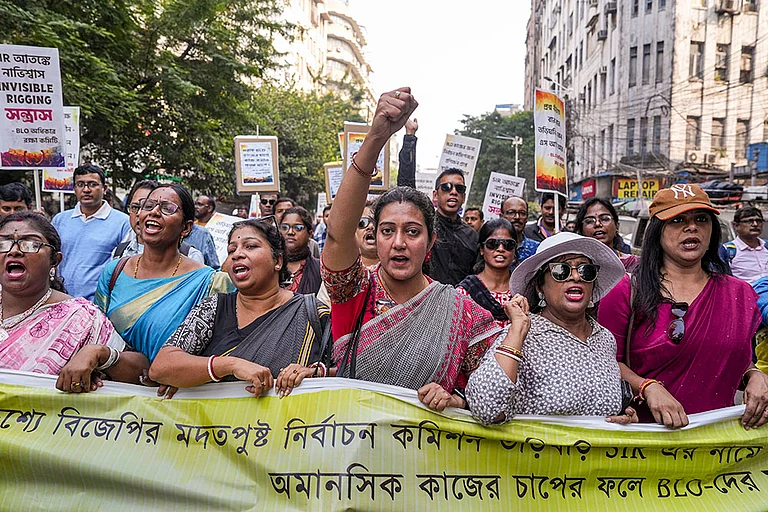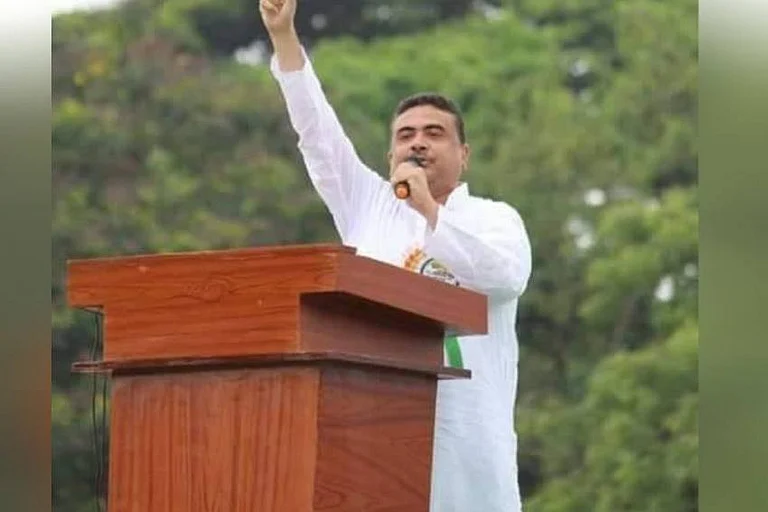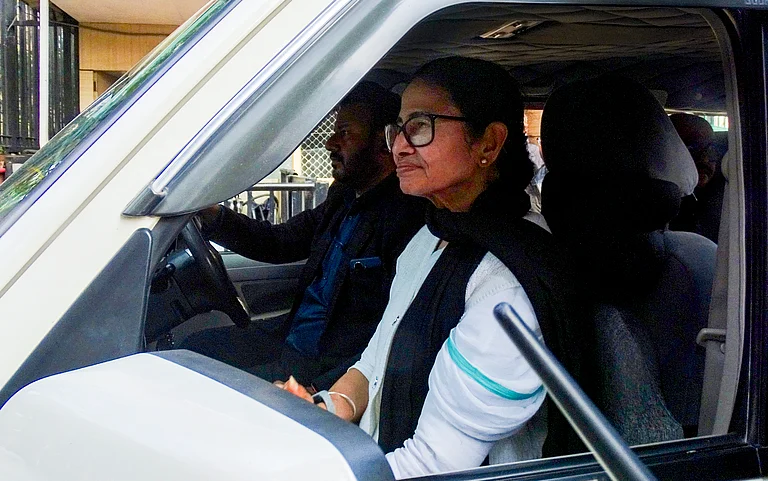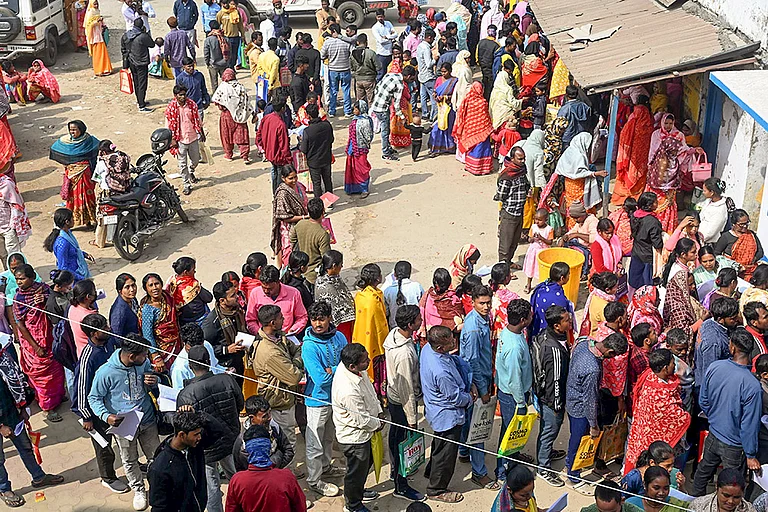Being alienated from their mother tongue is not a novel phenomenon for the Lepcha tribe who are considered to be the first inhabitants of the Sikkim and the West Bengal districts of Darjeeling and Kalimpong (the Darjeeling Hills). This is true especially for the Lepcha population domiciled in the Darjeeling Hills as compared to Sikkim. The forces of colonialism, migration, modernity and the Nepali language as the lingua franca can be argued to be the prime determinants accounting for the petering out of their language. With its own unique script, Rongring as the Lepchas refer to their first language, is acknowledged to be the one of the oldest in the Eastern Himalayas even predating the Tibetan and the Nepali languages and dialects that are currently ubiquitous in the aforementioned regions. The UNESCO’s List of Endangered Languages of India has designated this ancient Himalayan language as “definitely endangered” among the total 197 endangered languages of India.
The past five centuries have witnessed the political and cultural hegemony of the Tibetans, the British Raj and the pan-Nepali Gorkhas on the Lepcha population of the Sikkim and the Darjeeling Hills and that has invariably had a detrimental impact on their language, identity and culture further catalysing their linguistic crisis. On account of these socio-political trajectories of the Sikkim and the Darjeeling Hills, numerous colonial and post-colonial scholars in their ethnographic and literary descriptions have foregrounded the rhetoric of the Himalayan Lepchas as a vanishing tribe. In fact, anthropologist Jenny Bentley identifies that this vanishing trope of the Lepchas is now an essential aspect of their modern-day cultural description.
Today, the Lepcha population within the Indian Nation State are predominantly found in the federal states of Sikkim and the Northern Hills of West Bengal. In both these locales, they are a numerical minority in comparison to other ethnic groups. It is noteworthy that according to the present-day spatio-political distinctions of Sikkim and West Bengal, the former’s Government has made significant efforts to preserve the Lepcha tribe's literary and cultural elements, including the safeguarding of their vernacular. The Sikkim administration has recognized the Lepcha language as one of the eleven state dialects/languages along with its incorporation in the state curriculum. However, in the context of West Bengal, the ethnopolitical mobilisations of the Lepchas of the Darjeeling Hills in their efforts to conserve their language and culture have seldom received state government sponsored assistance until 2013, after the establishment of the West Bengal Mayel Lyang Lepcha Development Board; a Tribal Development Board established under the Trinamool Congress Government.
The endeavours of cultural preservation by the Lepchas of the Darjeeling Hills, who do not identify themselves under the ethnolinguistic meta-category of the pan-Nepali Gorkhas, have mostly been bottom-up efforts. They have been the initiatives of the independent Lepcha individuals and groups that have given rise to the “Kalimpong Stimulus” as sociologist Vibha Arora argues. Such mobilizations have given ascent to diverse forms of ethnopolitical trajectories for upholding and fortifying the Lepcha ethos across the Darjeeling Hills and beyond.
In a similar vein, the rapid erosion of the Lepcha language compounded by its absence in the Eighth Schedule of the Indian Constitution was taken into cognizance by a group of likeminded Lepchas of the Kalimpong District of West Bengal. Their efforts to address this cultural aberration resulted in the creation of the Rongring Global Lepcha Language Online Course in 2020; an online Learning Management System (LMS) medium that enabled anyone to remotely learn the Lepcha Language. This initiative further brought additional Lepchas to the enterprise and this collective eventually became the Rongring Lepcha Culture and Welfare Society (RLCWS).
The RLCWS is a non-profit body with its headquarters in the Kalimpong District of West Bengal and is registered under the West Bengal Societies Registration Act, 1961. With the primary objective focused around preserving and propagating the endangered Lepcha language, the RLCWS over the last three years has channelled its efforts for the further outreach of its customized digital Lepcha curriculum. Through this virtual pedagogic exercise, more than 300 students from 13 countries enrolled themselves in this novel venture and learnt the Lepcha language.
This initiative allowed for a global exposure of the Lepcha language especially among the scholars of anthropology and linguistics. On account of this, the RLCWS was able to collaborate with the Tokyo University of Japan in a Japanese-Lepcha translation and co-publishing project of Lepcha folktale of ‘Kasoak Book’. The RLCWS also partnered with Toronto University of Canada in a comprehensive phonetic documentation venture that involved the digitization of more than 13,000 Rongring letters and words as a part of an undertaking to develop a Lepcha language application.
The RLCWS on 9th December, 2023 launched the Rongring Self-Learning Platform; a virtual and an automated Software-as-a-Service based Lepcha language learning medium that allowed the uninitiated to learn Rongring. Additionally the RLCWS is also working on a mobile application that caters to not only learning the Lepcha language but also provides other information pertaining to the community. The RLCWS envisions to accomplish this by the utilization of Generative Artificial Intelligence (Gen AI) to power this mobile application. This venture involves the utilization of deep learning which in turn will be used for the functioning of a Large Language Model (LLM).
On 20th February, 2024, the Rongring Self-Learning Platform of the RLCWS was acknowledged by the United Nations World Summit Awards (UN WSA) as the Global Winners for 2023 in the category of ‘Culture and Heritage’. It stands to be the sole organization from India to achieve this recognition in the light of their contributions to safeguard, preserve and disseminate the endangered Lepcha language.
The RLCWS is set to attend the UN WSA Global Congress in Chile, South America from 14th to 17th April, 2024 among 400 attendees from more than 80 countries. The UN WSA is a platform within the rubrics of United Nations World Summit on the Information Society that recognizes digital and technology-based solutions that cater to the addressal of various social crises and especially the ones that are centred around the United Nations Sustainable Development Goals. The UN WSA promotes and strengthens technologically driven solutions across the categories of ‘Business and Commerce’, ‘Culture and Heritage’, ‘Environment and Green Energy’, ‘Government and Citizen Engagement’, ‘Health and Well-being’, ‘Inclusion and Empowerment’, ‘Learning and Education’ and ‘Smart Settlements and Urbanization’ on a global scale.
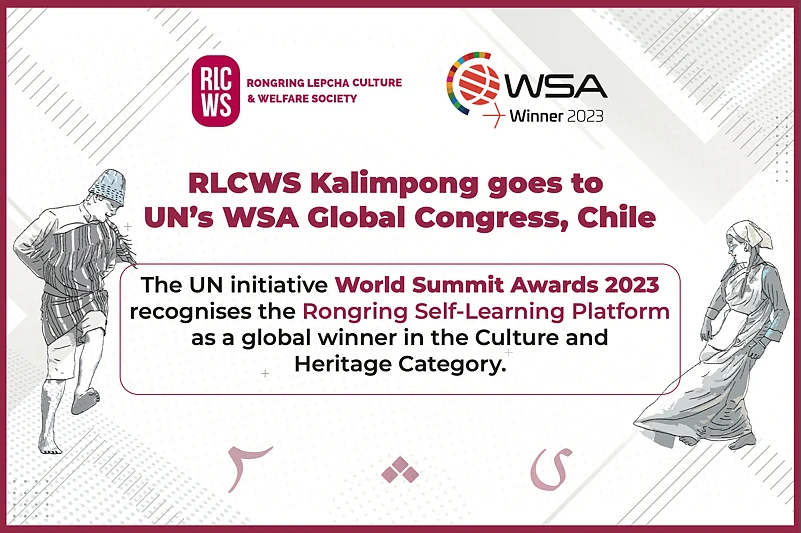
The efforts of the RLCWS in creating a digital avatar of the Lepcha language and finding new mechanisms to propagate it on a global level shows the efforts of the organic intellectuals of Kalimpong, who in their own capacities, are striving to correct the linguistic void in the Lepcha cultural matrix. Furthermore, RLCWS has not just become a knowledge platform catering to Lepcha phonetics and semantics but also a window to look into the cultural subjectivities of the Lepcha tribe of the Eastern Himalayan region. This particular conservation effort exhibits the unique self-reliance and agency of the Lepchas to protect and propagate the intangible aspects of their culture through the appropriation of technology and the digital space. This has rendered the diffusion of the Lepcha language from a local scale to a global arena regardless of the political order of the sovereign boundaries.
Such a novel and innovative approach to resolving a social issue demonstrates the myriad of opportunities that contemporary technology presents for the empowerment of a local community at a global level.
The author is a PhD Scholar of Sociology at the Department of Humanities and Social Sciences, Indian Institute of Technology, Bombay.







